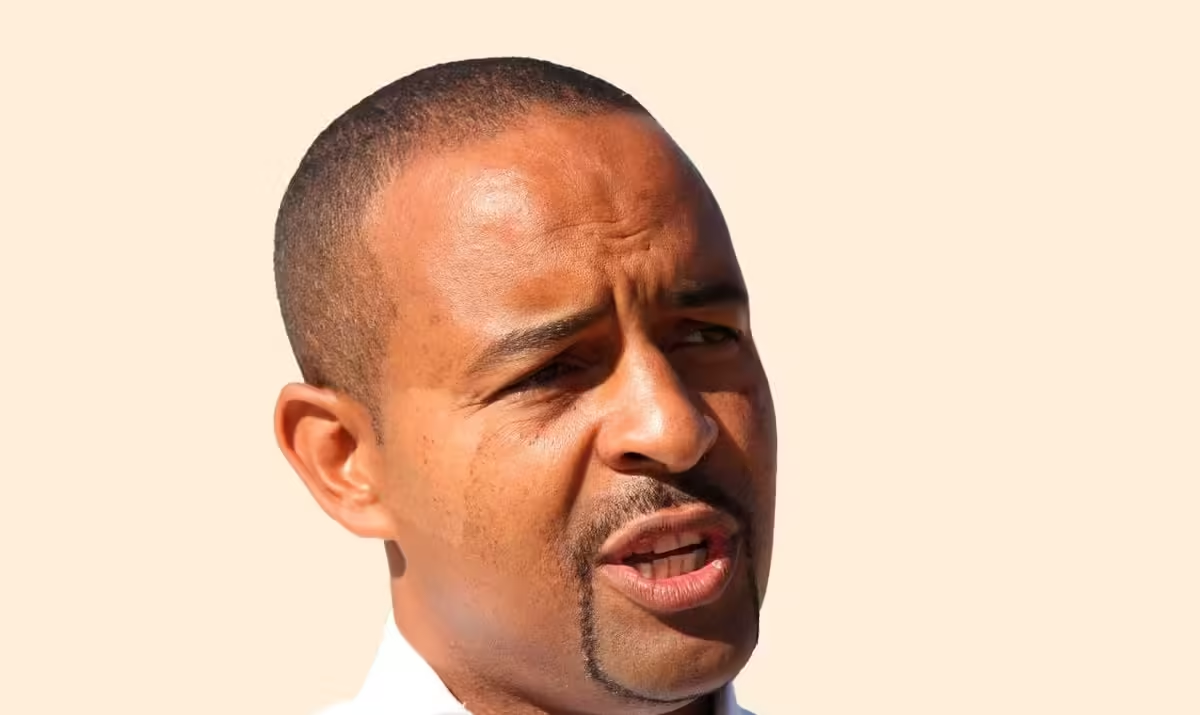Benson Ndeta has consistently made headlines over the years, but his latest move has taken many by surprise. Ndeta, a certified architect and seasoned businessman, has launched a KES25 billion ($194.2 million) bid to acquire East Africa’s largest cement company, Bamburi Cement, through his firm, Savannah Clinker.
This bid has positioned Ndeta as a potential major player in the region’s cement industry, drawing comparisons to Aliko Dangote of Nigeria, who dominates the sector with his Dangote Cement.
Ndeta’s offer has outshone the earlier bid by Tanzania’s Amsons Group, led by Edha Nahdi, which had proposed to acquire Bamburi Cement for $180 million, offering KES65 per share.
In contrast, Savannah Clinker has countered with a higher bid of KES70 per share, coupled with more attractive conditions, including a faster completion timeline and a firm commitment to securing all necessary approvals.
Should Ndeta’s offer be accepted, it would not only make him the head of East Africa’s largest cement manufacturer but also significantly expand his reach across the region’s market.
This bold move comes after Savannah Clinker secured funding last year to build a clinker plant in Kitui, Kenya. The acquisition of Bamburi would enhance Ndeta’s business portfolio and is likely to increase his already substantial fortune.
Contents
Who is Benson Sande Ndeta?
Apart from periodic news appearances primarily due to his business activities, Ndeta has largely managed to keep his personal life out of the public eye. A quick online search reveals limited information about the businessman challenging Tanzanian giant Amsons.
It is, however, well-known that Ndeta graduated from Jomo Kenyatta University of Agriculture and Technology with a Bachelor’s degree in Architecture. This laid the foundation for his entry into the construction industry.
He first entered the public eye in 2003 during former President Mwai Kibaki’s reign, when then-Trade Minister Mukhisa Kituyi appointed him as the chairman of The East African Portland Cement Company. He was the youngest-ever chair of a public company’s board in East Africa.
Ndeta leveraged his position at Portland Cement to build a vast network of influential connections, which later helped him establish Savannah Cement.
Savannah Cement: growth and fall
Savannah Cement was founded in 2012 by Benson Sande Ndeta in collaboration with Kenyan investors and Chinese investors, Wanho International and ACME Wanji Investment.
The initial ownership structure saw Wanho International holding a 40% stake and ACME Wanji Investment owning 20%, while the remaining 40% was controlled by Savannah Heights, a Kenyan firm. Within Savannah Heights, Benson Ndeta owned 35%, John Gachanga held 35%, and Donald Mwaura possessed 30%.
The company grew quickly, with Savannah Cement capturing a 15% market share by 2015.
Despite these achievements, Savannah Cement soon faced significant challenges.
Trouble began in 2014 when the Chinese investors exited Savannah and sold their stakes to Seruji, a company affiliated with Ndeta. This move made Ndeta the majority shareholder. This transition led to disputes among the remaining Kenyan shareholders, who felt they should have been given the opportunity to purchase the existing stakes. Legal battles ensued, exacerbating the company’s internal conflicts.
By 2017, Ndeta’s share in Savannah Cement increased to 74% following the approval of a deal by the Competition Authority of Kenya. This development came after the divestiture of private equity firm Quantum Global from Seruji.
However, power struggles were not the only problem the cement company was dealing with.
The company’s financial stability deteriorated significantly in subsequent years. Savannah Cement struggled with mounting debts and operational issues.
By late 2021, the company temporarily shut down its Athi River plant due to financial difficulties.
In 2022, Savannah Cement faced severe financial strain, culminating in a substantial loss of KSh 2.5 billion($19.4 million), according to the firm’s financials.
In May 2023, the High Court granted Kenya Commercial Bank (KCB) and Absa Bank Kenya the authority to appoint an administrator to recover over KSh 10 billion($77.6 million) owed by Savannah Cement. The company had defaulted on loans from these banks.
Savannah Cement’s financial records presented to creditors by the administrator painted a stark picture of Savannah’s fiscal issues. Per the records, there was an alarming increase in short-term loans, with the amount rising from KSh 1.83 billion($14.2 million) in 2018 to KSh 13.48 billion($104.6 million) by May 2023.
Kahi projected that even with a turnaround window, the firm would be loss-making for the better part of the period, implying that such a turnaround would need to be heavily financed by additional debt to sustain operations. Raising debt would be difficult given Savannah Cement has no assets to collateralise.
“The administrator cannot guarantee that by attempting to turn around the business, the outcome to the entire body of creditors will not be worse off than would have been the case had the company simply gone into liquidation,” Kahi said.
Fortunately for Ndeta, he had divested from his shareholding in Savannah Cement in November 2022, just months before the company was dragged into court for non-repayment of the loans in question.
Savannah Clinker
Ndeta established Savannah Clinker in 2019. The company came into the spotlight in 2023 when it secured funding amounting to KSh65 billion ($504 million) for the construction of a new clinker factory in Kitui. The firm said it raised the funds through a privately placed debt arrangement.
“I am extremely proud to have the support of a major international investor who shares our vision and beliefs in what is required to deliver the growth and development of our key infrastructure and affordable housing,” Savannah Clinker’s founder, Ndeta, said at the time.
This proposed acquisition of Bamburi is the next step in a strategic move poised to make Savannah Clinker the largest cement maker in East Africa.
Leadership
Apart from Savannah Cement and Savannah Clinker, Ndeta has founded several companies over the years including, Adventis Inhouse Africa, and Rapid Communications Limited. He also serves on the board of SOS Children’s Villages in Kenya and is a Council Member of the Architectural Association of Kenya.
Additionally, he is a Council Member of the Architectural Association of Kenya, where he influences architectural practices and standards in the region.
Professionally, Ndeta is a registered architect with the Board of Registration of Architects and Quantity Surveyors in Kenya.
He is also a member of the Architectural Association of Kenya’s Architects and Construction Project Management Chapters and the Institute of Data Processing Management in London.
Further, Ndeta has sat on the Commonwealth Association of Architects Validation Team that monitors university curriculum for Commonwealth accreditation
Ndeta’s legal problems
Ndeta’s career has not been without controversy. He was implicated in a scandal involving Dantes Peak Limited, a company contracted to import sugar for Mumias Sugar Company.
The deal, which was supposed to generate significant revenue for Mumias, ended in a substantial loss, leading to allegations against Ndeta.
Dante’s Peak was contracted to import 30,000 metric tonnes of sugar from Sudan’s Kenana Sugar Company on behalf of Mumias.
The deal, which was supposed to alleviate Mumias’ production shortfall and generate KSh330 million($2.5 million) in revenue, resulted in a substantial financial loss.
The sugar importation faced significant hurdles, including the failure to clear port charges when the cargo arrived in Mombasa.
The Kenya Ports Authority, along with Dubai Bank and the Kenya Revenue Authority, seized the sugar due to unpaid charges, forcing Mumias Sugar to step in and cover the costs.
An audit conducted by KPMG revealed that instead of profiting, Mumias Sugar Company suffered a loss of KSh765 million($5.9 million) from the deal.
The audit pointed to several issues, including delays in clearing the sugar from the port and the involvement of “sugar barons” who allegedly interfered with the process. These problems significantly contributed to the financial difficulties that Mumias was already facing.
Ndeta, however, has consistently defended his role and the actions of Dante’s Peak Limited.
He argued that the deal was not the primary cause of Mumias Sugar Company’s financial troubles, stating that a company of Mumias’ size could not be brought down by a single transaction of this nature.
Ndeta also emphasized that Dante’s Peak had won the tender through a legitimate and competitive process, and he has denied any wrongdoing or involvement in the subsequent issues that plagued the sugar miller.
Despite these controversies, Ndeta has continued to maintain his position in the business world, with his focus now firmly on expanding his influence in the cement industry.






